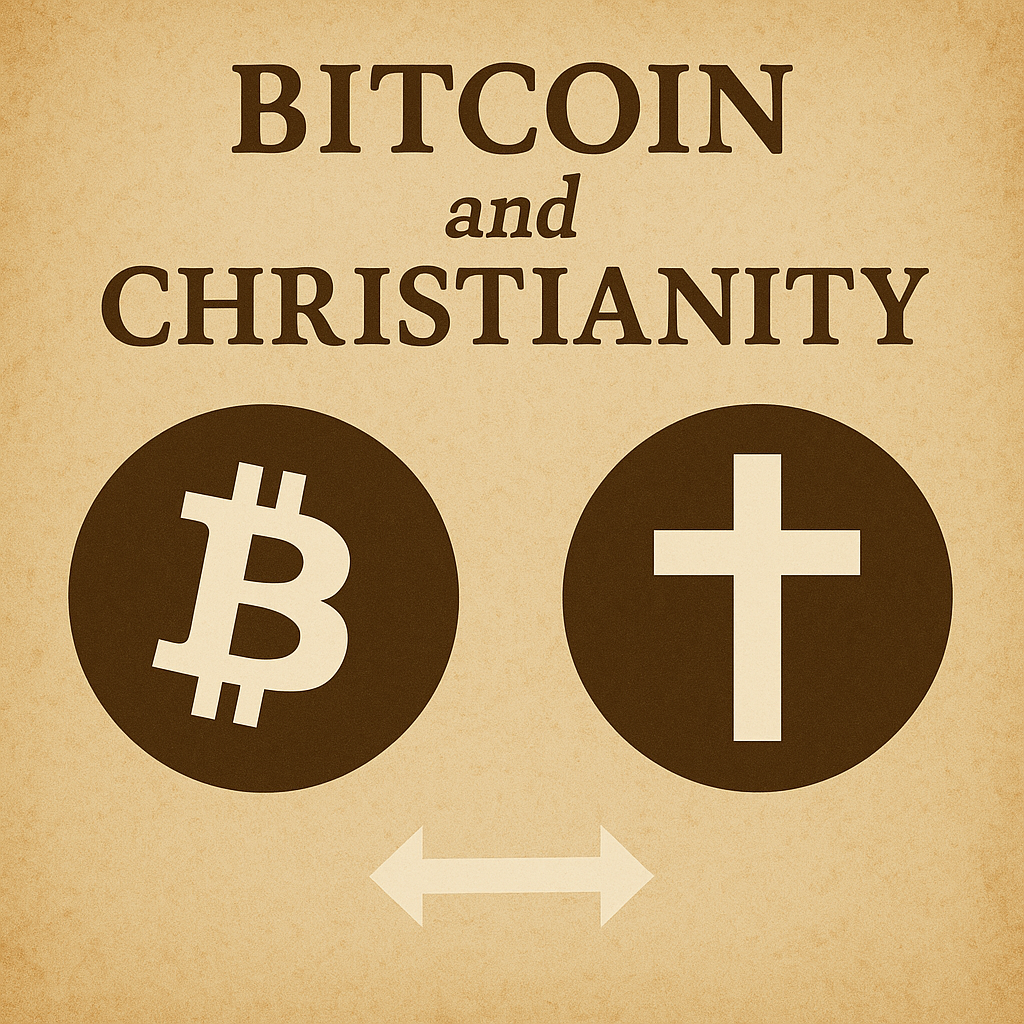There are some interesting philosophical and structural parallels between Bitcoin and Christianity, though they obviously differ in purpose. Here are some key comparisons:
1. Decentralized vs. Institutional Power
- Christianity: Jesus challenged centralized religious and political authorities, advocating for a direct relationship with God rather than dependence on corrupt institutions.
- Bitcoin: Bitcoin removes the need for centralized financial institutions, allowing individuals to have sovereignty over their own money.
2. Faith in the Unseen
- Christianity: Faith is a core principle—believers trust in God’s plan even without physical proof.
- Bitcoin: Bitcoiners often operate on strong conviction, believing in Bitcoin’s long-term success despite volatility and external skepticism.
3. Immutability & Truth
- Christianity: The Bible and Christ’s teachings are considered eternal truths, unchanging despite cultural shifts.
- Bitcoin: Bitcoin’s blockchain is immutable—transactions, once confirmed, cannot be altered, ensuring truth and transparency.
4. Evangelism & Spreading the Message
- Christianity: Christians are called to spread the Gospel, sharing the “good news” of salvation.
- Bitcoin: Bitcoiners engage in relentless advocacy (orange-pilling), educating others on financial sovereignty and the flaws of fiat money.
5. The Idea of a Messiah & Satoshi
- Christianity: Jesus is the central, messianic figure who sacrificed himself for humanity.
- Bitcoin: Satoshi Nakamoto, Bitcoin’s pseudonymous creator, built the system, then disappeared, ensuring it could live beyond him.
6. Persecution & Resistance
- Christianity: Early Christians were persecuted for their beliefs but continued spreading their message.
- Bitcoin: Bitcoin has faced bans, censorship, and attacks from governments and financial institutions, yet adoption keeps growing.
7. Community & Fellowship
- Christianity: The Church forms a decentralized network of believers supporting one another.
- Bitcoin: The Bitcoin community operates similarly, with nodes, developers, and users working together to secure and expand the network.
8. A Vision for a Better Future
- Christianity: Promises a new heaven and earth, where justice and righteousness prevail.
- Bitcoin: Advocates a future of financial freedom, where individuals are no longer enslaved by inflation and corrupt monetary policies.
Final Thought
Bitcoin isn’t a religion, but the similarities in structure, philosophy, and mission are striking. Both challenge corrupt institutions, spread a revolutionary message, and require conviction to hold onto their ideals in the face of opposition.
Credit: ChatGTP (image and text)

Leave a Reply